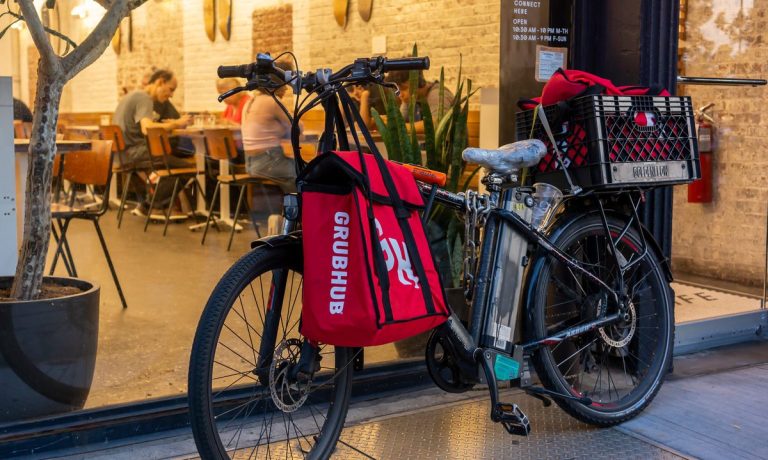New York Court Rules Food Delivery Platforms Must Pay Minimum Wage

The New York State Supreme Court has reportedly ruled that Uber Technologies, DoorDash and Grubhub must pay their food delivery couriers a minimum of $17.96 per hour.
The court’s decision comes after the three delivery platforms joined forces to challenge the city’s rule, which was set to go into effect on July 12, Bloomberg reported Thursday (Sept. 28). The rule requires companies to either pay couriers a flat hourly rate or pay per delivery at a rate of about 50 cents per minute.
The companies argued that the rule was not suitable for gig-based work and could result in increased fees for customers while reducing the earnings of couriers, according to the report.
However, Justice Nicholas Moyne declined to bar the city from implementing the rule, the report said. The new law also provides for a second raise to almost $20 an hour in April 2025 for app delivery workers. The city’s minimum wage is currently $15 an hour.
Uber said in the report that the law will put thousands of New Yorkers out of work and force remaining couriers to compete against each other to deliver orders faster, per the report. DoorDash said it is evaluating its legal options and called the ruling a deeply disappointing outcome for delivery workers, merchants and customers.
The Worker’s Justice Project, an advocacy group, praised the ruling as a win for immigrant workers, according to the report. The group stated that “multibillion-dollar companies cannot profit off the backs of immigrant workers while paying them pennies in New York City and get away with it.”
This ruling is just one of several legal battles that delivery companies have launched in recent years to challenge New York’s efforts to regulate their operations, the report said. The city has taken measures to regulate apps that facilitate ridesharing, food deliveries and short-term rentals as these apps have gained acceptance in recent years.
This news comes about a week after it was reported that a judge denied a motion to dismiss another lawsuit brought by Uber Eats, DoorDash and Grubhub. In that case, the three companies aim to end the city’s cap on how much meal-delivery services can collect in fees from local restaurants.